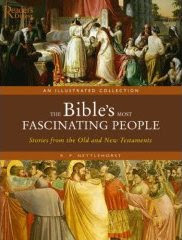But yet the critics insist that the only real obsticle to peace is Israel building houses, which proves Israel isn't interested in peace. Palestinian rockets, suicide bombers, and daily anti-Semitic ravings in newspapers, television and radio stations are apparently not obsticles to peace, since they never get mentioned as a problem.
Jordan and Egypt controlled those "Palestinian" territories from 1948 until 1967. Never once, between 1948 and 1967 did the "Palestinians" demand an independent state. No Arab nations urged boycotts of Egypt or Jordan. They never demanded urgent meetings of the U.N. Security Council when the Jordanians or Egyptians built stuff. After all, the Jordanians and Egyptians aren't Jewish.
Meanwhile, Israel's critics who condemn the Israeli's for buidling houses, were completely silent about the Palestinian government dedicating a public square to a murderer (who already has a girl's school in Hebron named after her). But of course, the critics have been silent for years about the bombings and shootings and anti-Semitic ravings of the Palestinian leadership:
Vice President Joe Biden took umbrage last week when Israel announced during his visit that it had approved new housing construction in East Jerusalem. But another contentious incident that took place during Biden's visit got far less scrutiny.
March 11 marked the 32nd anniversary of the deadliest terrorist attack in Israel's history, and this year the Palestinian Authority decided to honor the 19-year-old leader of the attack, Dalal Mughrabi, by naming a square in a town outside Ramallah after her. The commemoration was scheduled for the anniversary.
The official ceremony was ultimately canceled to avoid antagonizing Biden during his visit, but the square was nevertheless named for Mughrabi, and several dozen Palestinian students from President Mahmoud Abbas' Fatah movement gathered in her honor for an unofficial dedication.
So what was the deed that deserved this commemoration? On a Saturday in March 1978, the squad of Palestinian terrorists led by Mughrabi entered Israel by boat from Lebanon and made their way to the main road between Haifa and Tel Aviv. By day's end, they had murdered 38 innocent men, women and children.
The first person Mughrabi and her gang of terrorists encountered was Gale Rubin, an American photojournalist taking photos of birds near the beach. They killed her and continued on their deadly path.
They then hijacked a bus full of happy families returning from a Saturday excursion. On their way to Tel Aviv, the terrorists shot at passing cars and killed more innocent people.
The terrorists tied all the men's hands to the bus seats. When Israeli security forces stopped the bus, the terrorists ran out while throwing hand grenades into the bus, setting it on fire. The men inside were burned alive....
How does a society have a suicide-murderer waiting list of 500 young Palestinians wanting to kill themselves along with Israelis, as was the case during the worst days of the second intifada, when a terror attack occurred almost daily?
The answers lie in years of brainwashing, which starts at a very young age, through education and religious television channels, mosque prayers and lessons that make people believe that death is better than life; that killing innocent people, without distinction, will improve Palestinian life.
The answers are rooted in years of glorifying the murderers, putting their posters on streets, giving their families money and respect, and yes, in naming city squares after them.
Dalal Mughrabi came into Israel 32 years ago this month with one intention: to kill Israelis, randomly, as many as possible. In most countries, she would be condemned for eternity. In today's Palestinian society, she is a heroine.
Israelis want a genuine peace with our neighbors. But as long as Palestinian society glorifies terrorists and murderers such as Mughrabi and the ones who killed our three children, we cannot believe that Palestinians are ready to live in peace with us.
Read the whole opinion piece from today's L.A. Times: Why Glorify the Murderers?
Frankly, I wonder how many Palestinians or their boosters really want peace. I fear that they just hate Jews and are using the whole "Palestinian cause" as a way to justify their anti-Semitism.






